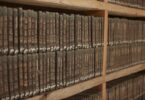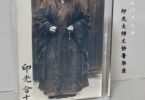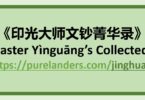宋临安府仁和吴琼
[27] Sòng [Dynasty’s] Lín’ān Residence’s Rénhé’s Wúqióng
吴琼,先为僧,后还俗,前后两娶,生二子。
Wúqióng, [was] first as [a] monastic, later returning [to] lay [life], before [and] after [with] two marriages, giving birth [to] two sons.
屠沽无所不为,常与人作厨子,每杀鸡鸭等物命,以手持起,叫云:「阿弥陀佛子,好脱此身去。」遂杀之,连称佛数声。每切肉时,一面切肉,一面念阿弥陀佛。
[Of] butchering, buying [and] selling [meat, he was] without that not done, constantly with people serving [as a] cook. Every [time he] killed chickens, ducks [and] other animals’ lives, with [his] hand held up, [he] called [out], ‘Āmítuófó[‘s] child, [be] well liberated [from] this body [to] go.’ Thereupon killing them, continuously reciting [the] Buddha[‘s name for] several times. Every time [he] cut meat, while cutting meat, [he would] simultaneously recite Āmítuófó[‘s name].
[Note 1: Although it is better to do the calling out and reciting as above, than not at all when killing and cutting animals, it is of course, much better to neither kill nor cut any animal, which creates great evil karma (恶业) while breaking the First (Bodhisattva) Precept. Such ‘practice’ of calling out to instruct, with reciting of the Buddha’s name, does not guarantee every animal will understand, give rise to the Three Provisions in time, and reach Pure Land. In fact, most will not make it this way. (If it is so easy to reach Pure Land, we might as well kill one another while doing the above? Of course not, as this does not make sufficient sense.) Being put through such terrible suffering, the animals are much more likely to cling to their pain, fear and anger, thus having lower rebirths or becoming vengeful spirits (i.e. one’s karmic creditors [冤亲债主]), than to reach Pure Land.]
常念佛不辍,教村中人念经修忏及劝人念阿弥陀佛。
[He] constantly recited [the] Buddha[‘s name], unceasingly, teaching people within [the] village [to] cultivate repentance, encouraging people [to] recite Āmítuófó[‘s name].
[Note 2: Although it is good to do the above, it is of course, much better to also give up killing and cutting of animals, to more completely cultivate repentance, by no longer creating such great evil karma.]
后眼上生瘤,如鸡子大,乃忧怖。造一草庵,分散其妻子,昼夜念佛修忏。
Later on [one of his] eyes growing [a] tumour, [that was] like [a] chicken’s egg [in] size, [he] thus [became] worried [and] fearful. [He] built a straw hermitage, [to be] separated [from] his wives, [in] day [and] night reciting [the] Buddha[‘s name for] cultivating repentance.
绍兴二十三年秋,告村中人云:「琼来日戌时去也。」
[In] Shàoxīng’s twenty-third year’s [i.e. 1153 C.E.] autumn, [he] told [the] people within [the] village, ‘Qióng, [on the] coming day, [at] Wūshí [i.e. 7 p.m.], [will be] going.’
人皆笑之。将用碗、钵、锅子尽与人。
People all laughed [at] him. Using [his] bowls, basins [and] pots, [he] completely gave [them to other] people.
次日晚,报诸道友行婆云:「琼去时将至,尽来与琼高声念佛相助。」
[The] next day’s night, [he] informed all [his] practitioner friends [and the] old woman serving [the] Buddha [shrine] at home, ‘[As] Qióng’s time [of] going [is] going [to] arrive, [may] all come, [and] with Qióng recite aloud [the] Buddha[‘s name, to] support one another.’
将布衫当酒饮了,即写颂云:「
似酒皆空,问甚禅宗;
今日珍重,明月清风。」
[He] used [his] cotton shirt [and] pawned [it for] wine, [which he] drank completely, then writing [a] verse,
‘Like [this] wine, all [are] emptiness, [if] asking what [is] Chán’s essence, [it is] today cherishing, [the] bright moon [and] cool breeze.’
[Note 3: It is of course better to not crave to consume any intoxicant at all, which breaks the Fifth Precept.He was probably fulfilling one of his last worldly desires when he drank wine, while becoming inspired to write the above, which also expresses his renouncing of intoxicants, with realising of the impermanent and unsubstantial nature of the ‘happiness’ they bring. He also reminded all to treasure what is present in the moment, also because it is impermanent and unsubstantial. What most important though, it to know how to attain that which is permanent and substantial – Buddhahood, via reaching Pure Land.]
端坐合掌念佛。叫一声「佛来」,即化去。
Upright seated [with] joined palms, [he] recited [the] Buddha[‘s name]. Calling once, ‘[The] Buddha [has] come’, then departing [to] go.
宋‧王日休
《龙舒净土文》
第五卷: 感应事迹三十篇
Sòng [Dynasty’s] Wáng Rìxiū
Lóngshū’s Pure Land Text:
Fifth Scroll: Thirty Essays [On] Deeds [Of] Connection [And] Response
Namo Amituofo : Translation and notes by Shen Shi’an
相关教理
Related Teachings:
上篇
Previous Essay:
宋潭州黄打铁
[26] Sòng Dynasty’s Tánzhōu’s Huáng Who Forges Ironware
https://purelanders.com/2022/01/29/26-song-dynastys-tanzhous-huang-who-forges-ironware
下篇
Next Essay:
宋荆王夫人
[28] Sòng Dynasty’s King Jīng’s Madam
https://purelanders.com/2022/01/29/28-song-dynastys-king-jings-madam
三十篇
Thirty Essays:
《龙舒净土文》第五卷:感应事迹三十篇
Lóngshū’s Pure Land Text:
[5] Fifth Scroll: Thirty Essays On Deeds Of Connection And Response
https://purelanders.com/longshu5





